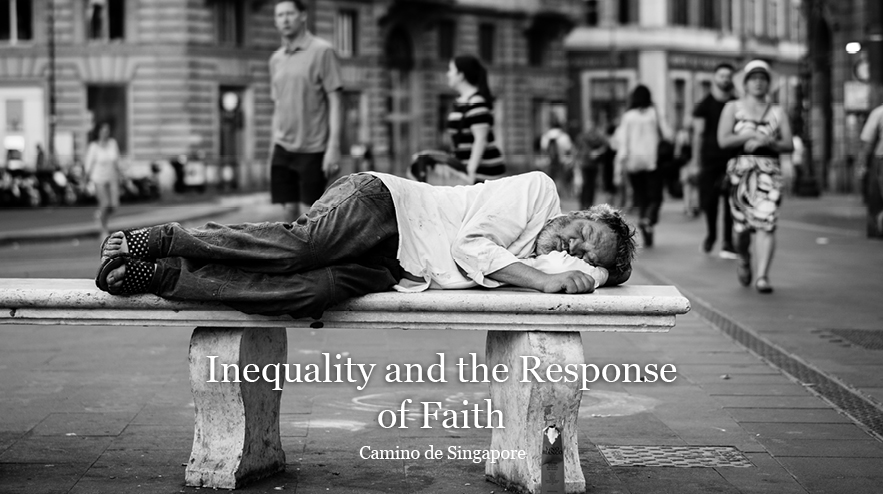No products in the cart.

Photo by https://unsplash.com/@johnmoeses
I can still remember the first time I received my salary. The excitement of finally earning ‘my own keep’, being free from relying on my parents for pocket money and being able to plan how I want to use my own money, in my own way and in my own time, filled my heart with pride and joy. Soon, the excitement gave way to tedious planning of how to allocate my money each month. I felt I did a good job. I thought everything I earned was due to me and I had full control of it.
It was only when I started working in Caritas Singapore and became more aware of the social teachings of the church that I started to have a different view of what I own, and what I felt was owed to me through my own hard work. I listened to lectures on what the church has to say with awe, but I struggled somewhat to internalise and apply them. The teachings of the church assure us that by means of our honest work, we have the right to acquire private property. Through this, we can sustain ourselves and our families. Yet, the right to private property is not an absolute right. It has a social dimension, which is the responsibility to ensure that those who are in need can have enough too. This is not about taking pity on others but about a conviction that we make available of what we have, as much as we can, to those who are struggling in our society. The teaching puts rightfully acquired possessions in the context of what is good for each person and for the whole society (Compendium of the Social Doctrine of the Church, 176–178).
Now, looking at our present situation, the COVID-19 pandemic has dealt a heavy blow to many businesses and, especially, many people in low-income jobs. I wondered then. Given what I know and what I have, what should be my response in faith to this challenge faced by the society? Moreover, the divide between the richest and the poorest is only getting wider. When I look beyond Singapore, many families struggle even harder with the lack of employment, very low wage and hunger. What does our faith have to say about this? How can we look to the wisdom the church for clarity and guidance in our daily living and decision making?
It is possible to step back and look to the large institutions to rectify this situation. After all, governments and large businesses have greater control over the distribution of wealth in the society and the world. In a recent article, concerns were raised on the widening wealth gap between the rich and the poor, and how this could be addressed by the said institutions. It is heartening to see that this issue is openly discussed and that there is a call to address inequality and promote inclusiveness.
Nevertheless, at the personal level, we can and should reflect more deeply on how we can exercise responsibility over our possessions. How can we see our resources being used for the common good of our society and, especially, for the vulnerable persons?
Jesus reached out to the forgotten and the marginalised in his time (cf. Lk 4:18-21). He had a special love for the poor, and he acted out this love through healing, teaching, and even death on the cross. He was in solidarity with all. Can we follow in his footsteps?
Gail Ng is part of the Special Projects team at Caritas Singapore. The study of earth processes has been one of her pet interests since young, and she suspects this is why she loves the colour green.
